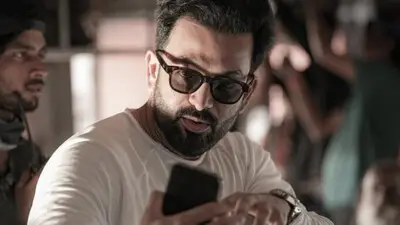Until the outbreak of the grassroot uprising on January 25, 82-year-old Mubarak seemed insurmountable as president of the most populous nation in the Arab world.
When he was elevated to the presidency in the wake of Anwar Sadat`s assassination in 1981, few had expected that the little-known vice-president would hold on to the country`s top job for so long.
Mubarak, who was lucky to escape when Sadat was assassinated by Islamic radicals at a military parade in Cairo, has survived at least six assassination attempts since then.
The narrowest being in 1995 shortly after his arrival in the Ethiopian capital Addis Ababa to attend an African summit. In the end, he was consumed by people`s anger and fury that lasted 18 days.
Mubarak was sworn in on 14 October 1981, eight days after the Sadat assassination.
The former Egyptian Air Force commander, despite having little popular appeal, had managed to hold on to power for three decades by positioning himself as a trusted Western ally to keep peace with Israel.
Throughout his years in power, Mubarak maintained the unpopular policy of peace with Israel and accomodation with the West that cost Sadat his life.
Mubarak, who ruled as a quasi-military leader since he took power, kept the country under emergency law, with sweeping powers to curb basic freedoms in the county.
He argued that draconian laws were necessary to combat Islamist terrorism, that he said would target the country`s lucrative tourism sector.
Amid pressure from his powerful ally United States, Mubarak had come under pressure for the first time to encourage democracy in the country.
Mubarak, who won three elections unopposed since 1981, had to change the system to allow rival candidates in his fourth contest in 2005.
Never a smoker or a drinker, he has built himself a reputation as a fit man who leads a healthy life.
In his younger days, close associates often complained of the president`s schedule, which began with a workout in the gym or a game of squash.
He had groomed his 40-year-old former investment banker son Gamal Mubarak to become the next leader as he moved steadily up the ranks of the NDP. But the street protests derailed that ambitious plans.
Born in 1928 in a small village at Menofya province near Cairo, Mubarak is married to a half-British graduate of the American University in Cairo, Suzanne Mubarak. They have two sons.
Despite having little popular appeal or international profile at the time, the burly military man has used his sponsorship of the issue behind Sadat`s killing--peace with Israel--to build up his reputation as an international statesman.
In effect, Mubarak, one of the world`s longest-serving presidents, has ruled as a quasi-military leader since he took power.
For his entire period in office, he has kept the country under emergency law, giving the state sweeping powers of arrest and curbing basic freedoms.
The government argues the draconian regime has been necessary to combat Islamist terrorism, which has come in waves during the decades of Mr Mubarak`s rule - often targeting Egypt`s lucrative tourism sector.
He has presided over a period of domestic stability and economic development that means most of his fellow countrymen have accepted his monopolisation of power in Egypt.
In recent years, Mr Mubarak has felt for the first time the pressure to encourage democracy, both from within Egypt, and from his most powerful ally, the United States.
Mubarak has won three elections unopposed since 1981, but for his fourth contest in 2005 - after a firm push from the US - he changed the system to allow rival candidates.
Critics say the election was heavily weighted in favour of Mubarak and the National Democratic Party (NDP). They accuse the Egyptian leader of presiding over a sustained campaign of suppressing opposition groups, most notably the Muslim Brotherhood.
In the past, Mubarak has said he will continue to serve Egypt until his last breath. In his speech on 1 February, he said: "This dear nation... is where I lived, I fought for it and defended its soil, sovereignty and interests. On its soil I will die. History will judge me like it did others."












